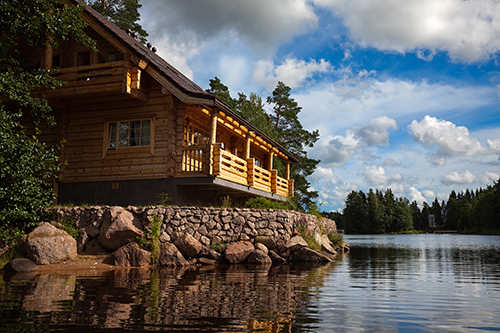What does life insurance have to do with cottage succession?

As another cottage season gets under way, it’s an ideal time to think about what will happen to this potentially valuable asset when the time comes for the ultimate wind-up: Who will take over the family vacation spot? Business owners face a similar dilemma, especially when more than one child is involved and they have varied interests.
In both scenarios, life insurance can provide an effective way to compensate all beneficiaries and ensure the continuity of the property or business.
How it works
Suppose that the bulk of your estate consists of a cottage that you purchased many years ago. Along with real estate values in general, it has appreciated significantly since you purchased it. You have two children, but only one of them is interested in owning the cottage.
You can take out a life insurance policy with a projected payout value equal to what the cottage is likely to be worth in, say, 20 or 30 years, plus enough to cover any taxes or debts that you will leave behind. Upon your death, the policy proceeds can be used to pay the estate debts, the cottage can go to the child who wants it, and a similar cash value (the remainder of the policy proceeds) can go to your other child. This strategy is equally effective when the indivisible asset is a business.
Benefits beyond the financial
Using insurance to equalize an estate can provide significant benefits. A family business, for example, is often worth more to someone in the family than it would be if it were sold on the open market. For one thing, if no child has sufficient funds to buy out his siblings’ shares, the business may have to be sold off quickly to pay off other estate expenses, possibly at “fire sale” prices.
On the other hand, a business that remains in the family will better benefit from the goodwill that the founders (generally one or both parents) have built up over the years. A business that stays in the family may also generate future employment for other family members for years to come.
A cottage, too, may be worth more if it remains in the family than if it were disposed of and the proceeds divided among successors. As part of an estate sale, the property may need to be sold quickly, possibly at a time when the market is down. In addition, a property that stays in the family can continue to benefit other members and serve as a focal point for family gatherings for years to come. Last but not least, preparing the disposal of an indivisible asset can drastically reduce your stress in later years.
